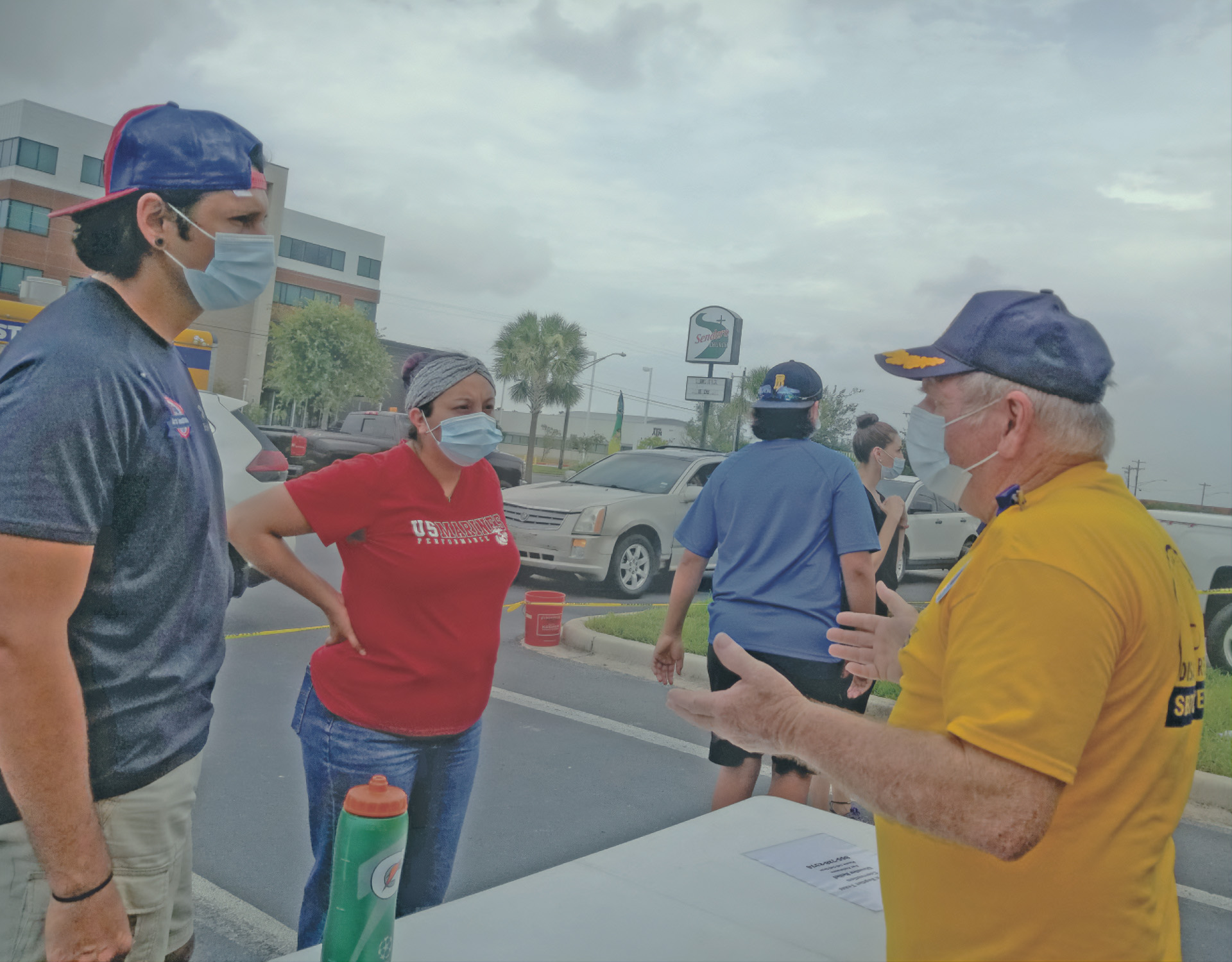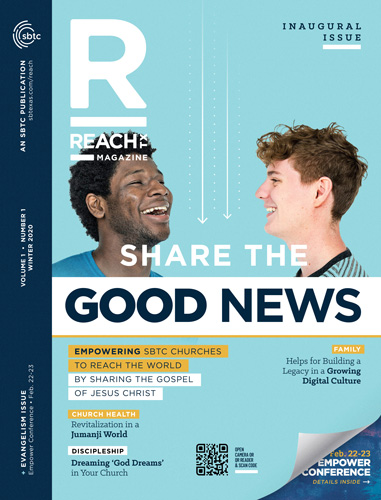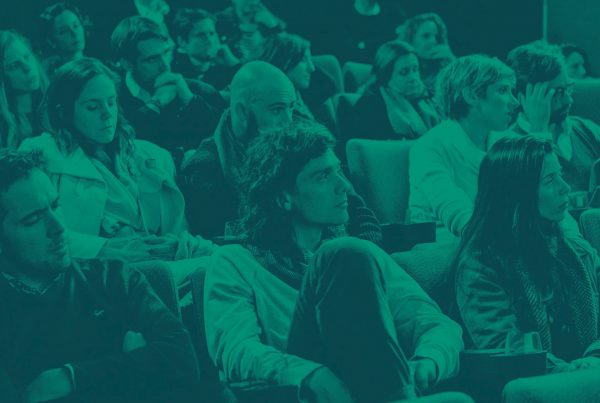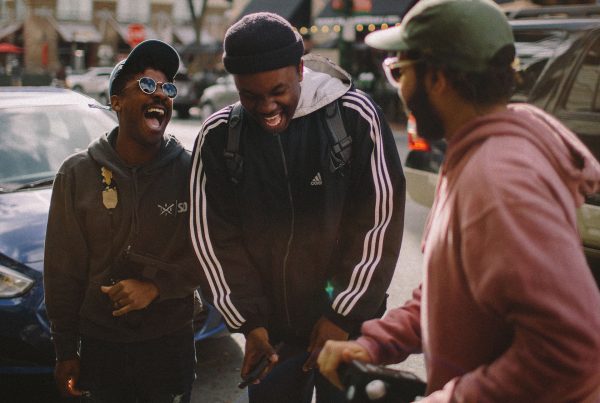On August 6, Pharr, Texas, native Patty Reynolds, 90, said goodbye to her only remaining sibling, her sister Sally Mullins, 87, as Mullins succumbed to Parkinson’s disease.
Reynolds and her nephew were allowed inside the quiet room at a residential healthcare facility to spend the last 15 minutes of Sally’s life with her.
Sally’s death was another heartache for Reynolds, who had reluctantly left her home to ride out Hurricane Hanna with her granddaughter and family, returning to find her yard strewn with downed trees and limbs following the E1 storm that struck the Rio Grande Valley in late July.
The first Atlantic hurricane of the 2020 season, Hanna, hit Padre Island on July 25, inundating South Texas with more than 15 inches of rain in places and prompting severe flash flooding. The storm’s onslaught brought more suffering to a region still reeling from a sharp surge in COVID-19 cases.
Although the Rio Grande did not rise as initially feared, residents grappled with power outages and damage from winds and flooding.
Reynolds’ home of more than 50 years was unscathed, but her sizeable yard was full of debris.
Reynolds remembered when Hurricane Beulah flooded the home in 1967, leaving water several inches deep inside. Grateful that the damage from Hanna remained outdoors, she was still overwhelmed by its magnitude, Reynolds’ granddaughter Shannon McCoy told the TEXAN.
McCoy, a former Southern Baptists of Texas Convention Disaster Relief ministry assistant who recently returned to live in the Valley, spoke with SBTC DR Director Scottie Stice, who encouraged her to submit a request for assistance.
A chainsaw and recovery team worked steadily for two days to clear Reynolds’ yard, continuing as she left to visit her sister the final time.
When Reynolds returned from that heartbreaking experience, DR crew leader Jesse Hauptrief asked permission to carve a cross out of the stump left from a massive hackberry tree split by the storm.
Reynolds burst into tears.
“I said, how appropriate for today,” McCoy recalled. “This was God’s perfect timing. She can look at that cross from now on and know God was holding her and was aware of her broken heart.”
McCoy admitted she was surprised at the impact the crews had, despite her experience in DR.
“I never was able to see things on this side of DR, and I am completely blown away,” McCoy texted to Debra Britt, SBTC DR administrator on site in the Valley. “Truly God’s work is being done.”
McCoy’s experience helped her know where to find help for her grandmother, but RGV survivors had no trouble contacting SBTC DR for assistance through the toll-free number, 855.728.1374 (855.SBTC DRHelp) and the number for Spanish speakers: 956.448.4712.
A rapid response
Chainsaw and recovery crews from First Baptist Melissa, Pflugerville and Bellville were among those quickly on site in the Rio Grande Valley, despite the threat of COVID-19.
By mid-August crews completed nearly 100 jobs: many involving cutting up fallen trees or limbs and clearing debris, with other tasks tackled by volunteers from McAllen’s Baptist Temple. Besides hosting the DR crews, the church provided two Spanish-speaking translators to accompany assessors.
Mosquitoes proved a challenge, although social distancing did not, with the Baptist Temple’s large youth building allowing for ample space to spread out.
Before recovery teams arrived, feeding volunteers hastened to the Valley.
By July 27, crews manning quick response mobile kitchens units began preparing meals for hundreds of survivors.
QRU crews from Salem-Sayers Baptist near San Antonio and the Top O’ Texas association in Pampa worked until August 2 from locations in McAllen, Edinburg and Sullivan City to fix 5,961 meals for survivors, their efforts supported by the Salvation Army which provided 500 dinners daily.
“This was a huge number. The QRU’s capacity is 700 meals a day. The teams did an outstanding job,” Stice said.
SBTC DR mass feeding volunteers also assisted in the Salvation Army’s central kitchen in McAllen, preparing 20,000 meals by August 11.
Sendero Community Church in McAllen was the first site served by the QRUs. Pastor David Ortega and his wife, Mari, hosted SBTC DR feeding volunteers in their home.
Hundreds of survivors, most still lacking electricity, drove through Sendero’s parking lot to pick up meals. Many came from nearby Pharr and learned of the distribution from flyers printed by the Ortegas and distributed by the church.
Church members, DR volunteers, Ortega and neighbors greeted vehicles, talking with people in line to receive hot food. Survivors and volunteers alike were masked. With food came offers to pray.
Connections despite barriers
Despite barriers set up for physical distancing, rigid preparation and serving protocols and temperature checks for volunteers, human and divine connections occurred.
Volunteer Ronnie Roark said masks forced him to pay closer attention to each meal recipient.
“We look at people’s eyes much more. Their eyes will tell you,” Roark mused, describing one lady who “seemed about to tear up.”
When asked if she had a prayer request, the woman replied in a trembling voice, “Yes, I need a job.” Roark’s wife, Connie, prayed with her.
In the car line, Ortega approached Rick, a single father of two living in an apartment that still lacked power.
Ortega asked Rick how things were going spiritually.
“I’ve kind of strayed away,” Rick replied, explaining that in June he had tested positive for COVID-19 and quarantined five weeks. “I thought I was going to die,” he said, referring to Hurricane Hanna as “the second time the Lord to get my attention.”
Ortega talked to Rick about Christ, encouraged him to go to church and gave him a Bible, offering spiritual food in addition to physical sustenance, even in a pandemic.
Stice summed up the RGV deployment:
“It has been difficult to deploy in the midst of a pandemic, but God is faithful and has provided the volunteers and resources to meet the need. I praise God for our SBTC volunteers who selflessly give and serve to meet the needs of survivors in the aftermath of a natural disaster.”
“It’s a privilege to be here,” said Mike Lawrence of Redwater, on his first deployment. “It’s really about loving others. What Christ called us to.”
Adapted from stories by the author appearing in the Southern Baptist TEXAN.







